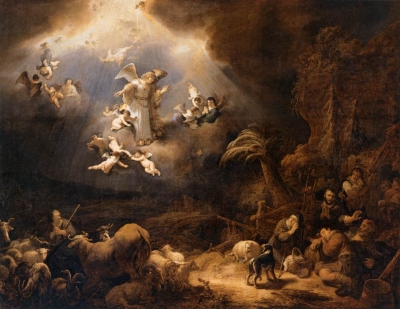“For the grace of God that brings salvation has appeared to all people. It teaches us to say ‘No’ to ungodliness and worldly passions, and to live self-controlled, upright, and godly lives in this present age, while we wait for the blessed hope — the glorious appearing of our great God and Savior, Jesus Christ, who gave himself for us to redeem us from all wickedness and to purify for himself a people that are his very own, eager to do what is good.” ~Titus 2:11-14
While we wait for the coming of Christ, we are to help others in the name and the manner of the One who came here to help us. During this Advent Season, we notice in the birth of Jesus that our God does not separate himself from the pain of the world. God through Christ enters the pain of others. He takes your pain into himself, he becomes your sin for you and takes it to the cross where he annihilates it forever. He dwells with us today in the middle of our suffering by his Holy Spirit. God has come to help his people. And as a people belonging to God, we join him in helping others. We are helpful in his spirit, in his name and manner, eager to do what is good.
We look to Jesus and we do God’s work for others the way he does it. In humility. No arrogance. No lording it over anybody. No beating anybody over the head with a stick. Or a Bible. Or a doctrine or tradition. Humility and service and love.
Look at the first coming of Jesus. God’s way is to join people where they are, level with them in their contexts, serve their needs, honor their humanity, become one with them, become one of them, even to the point of risking terrible loss. God could have very easily come to this earth to dominate us, to force us, to overpower us, and push us to where he wants us to go, even for our own good. But he didn’t. He came to us in humility and grace. To help.
And helping others is not something we do to get salvation, it is our salvation. We are being saved, we are being taught and shaped; it’s a long process. We do keep our eyes on that final glorious destination, but never at the expense of the journey. You know, Jesus talked all the time about the Kingdom of Heaven, but all his teachings had to do with living right here, right now, in the present age, with people.
“You know the grace of our Lord Jesus Christ, that though he was rich, yet for your sakes he became poor, so that you through his poverty might become rich.” ~ 2 Corinthians 8:9
Jesus says whenever you feed someone who’s hungry, you’re feeding me; whenever you give a drink to a thirsty person, you’re giving that drink to me; whenever you invite in a refugee or clothe the needy or visit somebody in prison, you’re helping me. That’s not just a metaphor. That doesn’t mean, “Oh, Jesus’ heart is with those kinds of people.” It means Jesus is those kinds of people!
When God came to earth and put on our flesh and blood, he chose to become homeless. He decided to identify with the jobless, the poor and needy, the hungry. That’s our Lord. And when you decide to follow Jesus, when you pray for God’s Spirit to transform you more into his holy image, you’re deciding to help the people without power, the people without beauty, the people without money and wealth. That’s how you help in his spirit.
The same grace of God that has appeared to all people in Christ Jesus and saves us is the same grace of God that trains us how to live in the present age while we wait for his second appearing. His gracious help for us turns into our help for others.
Peace,
Allan






Recent Comments